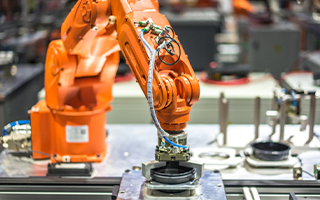Mesmerizing Blockchains and their impact on Bitcoins

The number of devices connected to the internet is mind boggling. More than a quarter of the world is using smartphones. An estimated 9 billion IoT devices are in operation as per International Data Corporation*. The world payments record data estimated that 426 billion non cash transactions took place in 2015 and global digital payments volume continues to increase with annual growth rate of 8-10%**. .That’s about 1.17 billion transaction per day or 13.5 thousand transactions per second. These numbers emphasize that we have an information explosion in front of us. Now think what will happen if a centralized authority or system is responsible for managing, validating and authorizing all the action taken via these devices? It will lead to a highly attack sensitive and overloaded network. This is where Blockchain comes to the rescue. Blockchains help in managing, validating and authorizing these actions digitally.
What is a blockchain? What are the features of a blockchain?
Conceptually, as the name suggests, Blockchain is just information blocks chained together. Blockchains contain huge information and provide key insights on the underlying data, simultaneously solving storage, security and synchronization issues. It could be compared to a form of distributed ledger or database. As in a public ledger system, blockchain records and validates each and every transaction made, which makes it secure and reliable. All transactions made are authorized by miners, which makes the transaction immutable and prevent it from hacking.
How are blockchains disrupting business?
Different manifestations of blockchain (decentralized technologies) are going to be the next huge wave in technology.
In the words of Don Tapscott, The first generation of the digital revolution brought us the Internet of information. The second generation — powered by blockchain technology — is bringing us the Internet of value: a new platform to reshape the world of business and transform the old order of human affairs for the better.
Secure and distributed. The internet of things (IoT) can record every transaction using blockchain in a secure and anonymous but distributed manner. Utilizing this concept the banking sector has radically changed the way conventional transactions used to work. Instead of a centralized authority to keep track of all the transactions, everyone can now record all the transactions by making the archaic ledger system distributed.
No third party. People can make transactions without the need of a third party. The most mature plans for using blockchains aims to cut costs for financial institutions in tasks such as settling transactions involving bonds or other financial instruments.
Their Impact on Bitcoins
As organizations are increasingly becoming digital, blockchain technology is providing the “digital money” through its application in bitcoins , a form of cryptocurrency. Bitcoin is a digital currency that is underpinned by a distributed ledger or "blockchain". This ledger contains records of all bitcoin transactions, arranged in sequential "blocks". In order to prevent tampering, the ledger is public or "distributed" and any altered version would quickly be rejected by other users. New bitcoins can be easily created by verifying transactions and compiling them into blockchains through a process called bitcoin mining. Anyone with access to the internet and suitable hardware can participate in mining.
Though several types of crypto currencies have existed before bitcoin, bitcoin is the first decentralized cryptocurrency. This means that the transaction happens directly from peer to peer without any need of intermediary. No one single authority can control or track the transaction that has taken place between peers.
Bitcoins are increasingly being used to send a “common currency” across the globe. Shared installments, loan repayments through bitcoins are also gaining popularity. Bitcoins dispense the middle-men in transactions; improving the dispensable wealth of end beneficiaries.
Let us now look at some of the fascinating new innovations and applications of bitcoins and blockchains.
- Abra: Abra is a blockchain-based digital wallet that lives on your smartphone. It has created a global digital currency/cash exchange application utilizing blockchain enabling secure and instant cash exchanges. Abra allows one to send and receive fund from any source in the world, without requiring bank accounts and transfer fees, using it’s own community of tellers
- BTC jam: BTC jam provides a marketplace for people around the globe to connect, borrow and lend money using bitcoins, without worrying about bank-accounts and different middle-men. Exchanges are instant, secure, risk-free and private.
- Bitbond: Bitbond is an overall appropriated crediting stage for bitcoins. It is a shared loaning stage for Bitcoin clients with fascinating new features like ‘Bitcoin advance’ (an agreement between one borrower and at least one of the banks to obtain a specific measure of Bitcoins)
Blockchains are changing the way business works. It does away with the third party or middlemen concept. The concept of central authority and control has been replaced by mutual trust and distributed network. Blockchain can likewise make exchanges unalterable, expanding the precision of records and additionally rearranging back-office forms. Also, in light of the fact that it is computerized, any archive or resource can be communicated in code and after that communicated in a record passage.


















